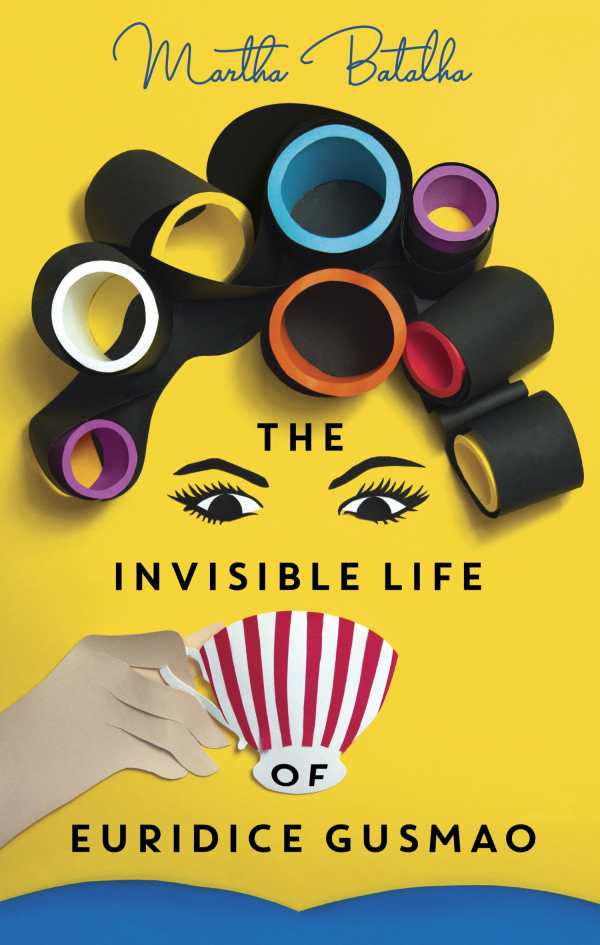
The Invisible Life of Euridice Gusmao
Baltalha’s debut is earthy and witty, with heroines who are memorable and inspiring.
Martha Baltalha’s debut novel, The Invisible Life of Euridice Gusmao, follows two sisters as they come of age in 1940s Rio de Janeiro. Euridice is the younger and more serious of the pair, while Guida is the elder, a self-assured beauty determined to have her way, even when determination turns to disappointment.
Guida enchants the son of a prominent local family, but his parents disapprove of the relationship and cut him off. The affair ends badly, leaving Guida pregnant, alone, and forced to rely on her ever-increasing street smarts to make a life for herself and her baby.
Euridice, on the other hand, attempts to be the good daughter in her family, marrying a man she feels less than thrilled about for security and respectability. Euridice’s keen intelligence and varied talents are suppressed by her bourgeois parents; like many women of her era, she accepts domesticity and motherhood as part of her fate. She feels that marriage is something “endemic,” to be endured, like having the flu.
Though the novel has an underlying tone of subtly wry humor, this does not lessen the depth of the narrative. Euridice’s obsessive outlets for her thoughts and energies—first a passion for cooking, and then a home-based dressmaking business—are engagingly related, if they are ultimately quashed by her husband’s disapproval. Euridice turns her passion to literature, typing away for hours at her mysterious opus, The History of Invisibility.
The novel spans from late nineteenth century Rio to the early 1960s, detailing the tenacious poverty of Estácio, the bland middle class of Tijuca, and the more cosmopolitan Ipanema.
Baltalha writes with a vivid resonance, creating distinctive characters in Euridice and Guida, the motherly prostitute Filomena, and Zélia, Euridice’s spitefully snoopy neighbor. While many of the women’s fathers, husbands, sons, and lovers act in domineering or destructively weak-willed ways, they often seem to be more products of their culture and time than outright villains.
The Invisible Life of Euridice Gusmao is earthy and witty, and the lives of its heroines of everyday existence are memorable and inspiring.
Reviewed by
Meg Nola
Disclosure: This article is not an endorsement, but a review. The publisher of this book provided free copies of the book to have their book reviewed by a professional reviewer. No fee was paid by the publisher for this review. Foreword Reviews only recommends books that we love. Foreword Magazine, Inc. is disclosing this in accordance with the Federal Trade Commission’s 16 CFR, Part 255.
